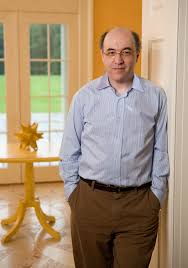A New Kind Of Science #1: Is Nature Continuous or Discrete ?
From the movies like the matrix, one may wonder if we are really a part of some large simulation or in computers itself.
For some, it is like a horror where one meets a reality, rather, simulated. But what if, just what if, it's true?
I stumbled upon this book: A New Kind of Science aka "NKS" by Stephen Wolfram that may hold a hint to this theory.

Below are the links to where you can find the books :
Story of Author:
There was a boy named Stephen who was a prodigy in physics having published his first scientific paper at age 15 and had received his PhD in theoretical physics from Caltech by age 20. Starting 1981, he began researching in a unique direction in science aimed at understanding the origins of complexity in nature. So, he started doing computer experiments to study behaviour of simple computer programs know as cellular automata. This book: A New kind of Science is the fruit of his 20 years of vast research where he questions the limitation of traditional Science and Mathematics and raises the philosophical question: Is Nature Continuous or Discrete?
So I decided, to spend some time reading this book in order to find some intuition to what the author wants to convey.
In the first chapter, the authors slowly introduce the paradigm of this new science. (Very Excited :-)!!)
If the rules of a program are simple, will the corresponding behaviour of the result might as well be simple?
What secret it is that allows nature seemingly so effortlessly to produce so much that appears to us so complex?
Well, I thought It might be or might not be.
However, the discovery that the author makes suggests that simple programs and rules can produces great complexity.
Reading further, I slowly came to understanding that there is indeed a paradigm shift taking place. Having being from an engineering background, especially mechanical where I have spent considerable time understanding systems and their differential equations, I could very well understand the approach of traditional science and mathematics. The approach is normally considering a system and breaking it step by step to find their underlining parts and then trying to analyse these parts in as much details as possible. However, this approach is particularly helpful for analysing basic components of everyday system, but not the intricate interactions and the overall complex behaviours. Indeed, even while solving as system of partial differential equations, I came across various assumptions and then solving the equations.
In the existing sciences whenever a phenomenon is encountered
that seems complex it is taken almost for granted that the phenomenon must be the result of some underlying mechanism that is itself
complex. But as the book claims, simple programs can produce great complexities.
The author highlights his Principle of Computational equivalence concept that will be revealed by the book progressively. It states that any system that we see which is not simple can be thought of as corresponding to computation of equivalent sophistication.
The various areas where the developed science is useful are:
Mathematics.Physics.Social Sciences.Computer Science.Philosophy.Art.Technology.Artificial Intelligence.Artificial Life.Catastrophe Theory.Chaos Theory.Complexity Theory.Computational Complexity Theory.Cybernetics.Dynamical Systems Theory.Evolution Theory. Experimental Mathematics.Fractal Geometry.General Systems Theory.Nanotechnology.Nonlinear Dynamics.Scientific Computing.Self-Organization.Statistical Mechanics.
The author ends the first chapter by reciting his personal experiences of unfolding the science through his various experiments and invention of Mathematica.
I am pretty much excited to read further chapters to witness the revelation of the science.
Disclaimer: I am, by no means, an expert. So, my commentary can be considered as a personal and not professional. I invite discussion and expert opinion on the subject matter. I am just curious and instead of just believing the media, I have decided to take the help of science books like these!

